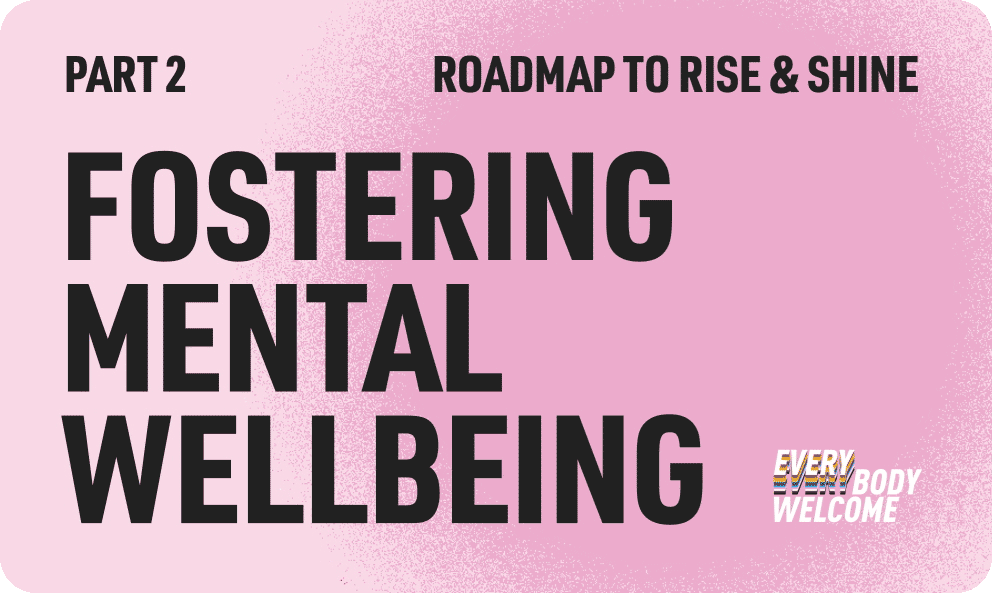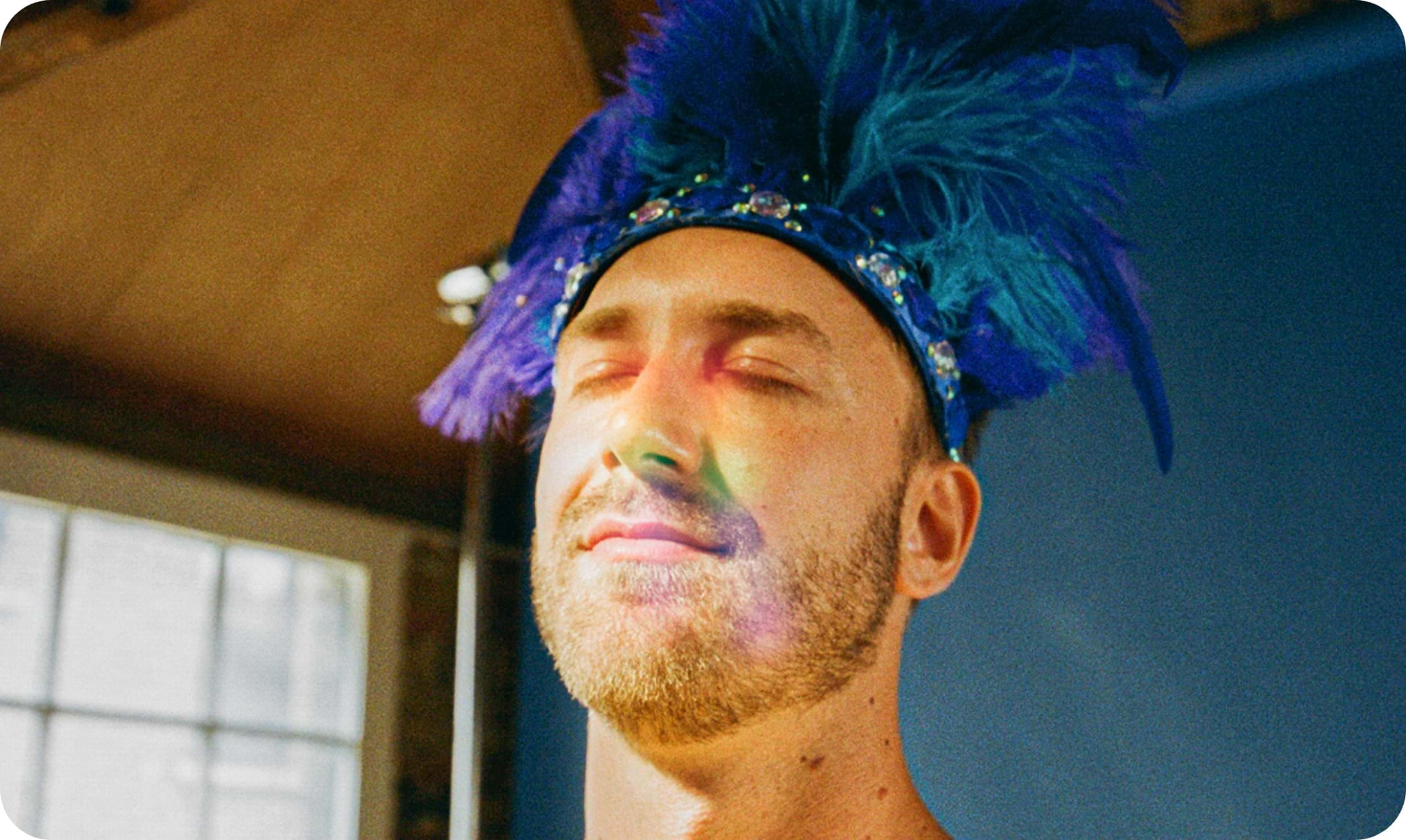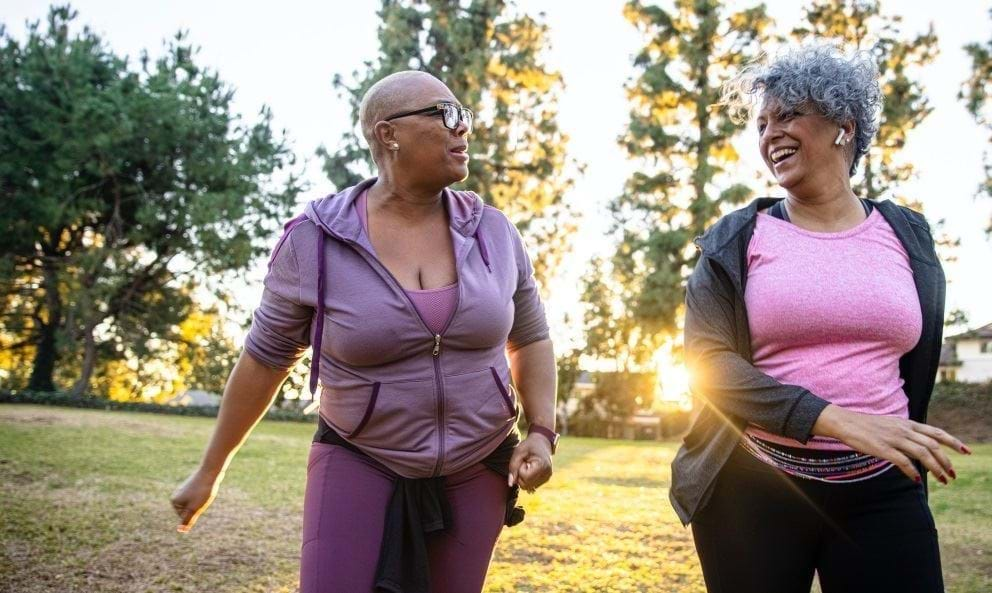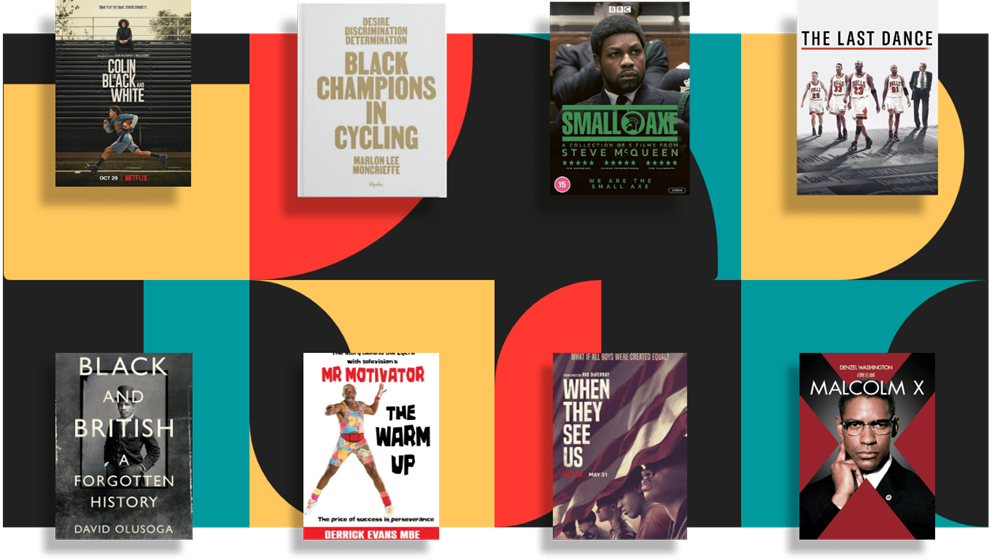Fostering Mental Wellbeing In The LGBTQ+ Community

Small gestures can make big differences, and this is symbolic of what we believe in at PureGym: feeling free to be whoever you are and accepting each other's differences. We welcome everybody.
That's why this Pride Month, together with our LGBTQ+ Employee Network Group, we have created a simple guide on fostering mental wellbeing and tips to become a better ally. This forms part of our 2022 Equality Action Plan and is supported by a number of important initiatives throughout the year to strengthen our commitment to make our workplace and gyms truly inclusive for LGBTQ+ people.
Whether you identify as LGBTQ+ yourself, love someone who does, want to become a better ally or just want to learn more, we hope our Roadmap to Rise and Shine will help to raise awareness and promote a more inclusive future for all.
We all have mental health, so it’s important that we look after it.

Mental health problems can affect anyone, but it can be more common among people who are LGBTQ+. While being LGBTQ+ does not cause these problems, some of the experiences that LGBTQ+ people go through because of their sexuality or gender identity can negatively impact their mental health, such as discrimination, homophobia or transphobia, social isolation, and rejection.
It's important to note that self-acceptance and embracing that you are LGBTQ+ can have a positive impact on your mental wellbeing, with boosted confidence and self-esteem, a sense of belonging to a community and a better relationship with friends, family, and colleagues.

Below, we’ve shared some of the common challenges LGBTQ+ people face and our tips to fostering good mental wellbeing:
Daily Mental Health Pressures
The LGBTQ+ community can face daily challenges which can impact mental wellbeing, some examples of these are shown below.
Having to come out again, and again
It can be exhausting to constantly consider when and where you share your identity. Many people will find this a source of pressure and mentally draining when meeting new people or changing jobs for example.
Internalised guilt, shame and stigma
There are many times throughout life where you can feel pitted against a ‘normal’ mould and what you ‘should’ look, act or feel like. This might have taught you to experience guilt or shame about who you are and can leave you attempting to hide your authentic self.
Feeling rejected
From direct insults to seeing LGBTQ+ rights jeopardised and social media comments, rejections big and small can take a major toll. This can impact mood, feelings of safety and wellbeing or cause you to block out emotions around these issues which in turn can lead to negative self-worth.
Doubting yourself
Assessing where you fit in and rejection can lead to self-doubt. Causing you to negatively self-appraise which can get in the way of being your true self and all you have to offer the world.

Tips for fostering mental wellbeing
Difficult experiences can present an opportunity to adapt and gain strength. Fostering good mental wellbeing is so important and we hope some of the tips below can help you regain your confidence and block out the negative;
Find your people
Community support can offer you a buffer against the daily strains you may feel, surrounding yourself with people that understand and inspire you is so important. You can find a community both online and offline and often for particular subgroups of identities and cultures – whichever way works best for you!
Charlotte Couchman, Gym Manager and PureGym’s LGBTQ+ Employee Network Group Ambassador describes how it’s okay to choose your own people, it’s okay to not fall in line. It’s finding people that add value to your life”.
Let yourself shine
Sometimes with so many pressures surrounding our sense of self and internalising negative messages, we can end up toning down and ‘muting’ ourselves without fully realising that we aren’t allowing our authentic selves to rise and shine! Surrounding yourself with a strong network of people can help to inspire you to have confidence you to dress how you want to, share your own beliefs and let your true personality shine through.
Seek out affirming content
Seeing yourself represented is affirming and fosters mental wellbeing. It can also serve as a reminder that your experiences are valid and important. Find content that represents your experiences and takes into account factors like race, culture, class and ability status. This could be in TV, art, movies, books, movies or podcast.
Get involved in community groups
‘Doing good’ can do you good. Evidence shows that helping others can be beneficial for your own mental wellbeing, so you might consider doing something good in your community, your local LGBTQ+ charity, or in the workplace. You could also ask if your company has an LGBTQ+ Employee Network Group which can provide you with information, allow you to get involved in making positive changes and help you to connect with other LGBTQ+ people in your workplace.
Billie O’Dowd, HR Co-ordinator and LGBTQ+ Employee Network Group Ambassador says that “Network Groups are good because it’s voices from people around the company from those communities bringing ideas to life, rather than it being top down”.
Take a break from news and social media
We all know social media can be both a blessing and a curse. It can be very mentally draining to see negative comments and denial of rights around the LGBTQ+ community online. It’s important to separate our real lives from social media, and it can be helpful for our mental health to take a break from social to do something that makes you feel refreshed and rested instead.
Seek out professional support
If you are experiencing mental health concerns, support from a professional is important.
Below are some support services you can get in touch with:
Switchboard is an LGBT+ helpline -- a place for calm words when you need them most. They're here to help you with whatever you want to talk about.
MindOut is a project run by and for Lesbian, Gay, Bisexual, Trans and Queer people. Our staff, volunteers and board of trustees, are all LGBTQ.
AKT supports LGBTQ+ young people aged 16-25 in the UK who are experiencing homelessness or living in a hostile or abusive environment.


